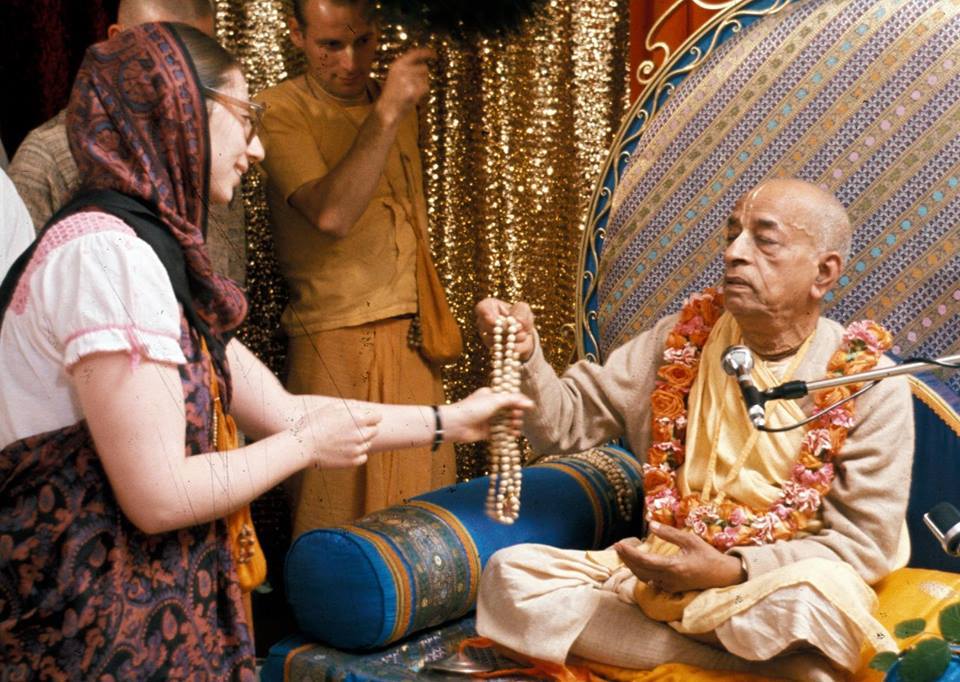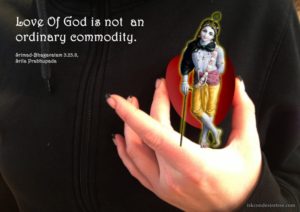
Modern science discovers the benefits of meditation
Recently there was a article on the front page of New York Times as to how scientists now believe that meditation may change our brain! (NYT_article)
Towards the end the article stated that scientists accept that know very little about brain and its mechanisms! So much for modern medical advancement! I am quoting some parts from that article below.
But now, scientists say that meditators like my husband may be benefiting from changes in their brains. The researchers report that those who meditated for about 30 minutes a day for eight weeks had measurable changes in gray-matter density in parts of the brain associated with memory, sense of self, empathy and stress. The findings will appear in the Jan. 30 issue of Psychiatry Research: Neuroimaging.
M.R.I. brain scans taken before and after the participants’ meditation regimen found increased gray matter in the hippocampus, an area important for learning and memory. The images also showed a reduction of gray matter in the amygdala, a region connected to anxiety and stress. A control group that did not practice meditation showed no such changes.
It has been hard to pinpoint the benefits of meditation, but a 2009 study suggests that meditation may reduce blood pressure in patients with coronary heart disease. And a 2007 study found that meditators have longer attention spans.
Previous studies have also shown that there are structural differences between the brains of meditators and those who don’t meditate, although this new study is the first to document changes in gray matter over time through meditation.
Ultimately, Dr. Hölzel said she and her colleagues would like to demonstrate how meditation results in definitive improvements in people’s lives.
“A lot of studies find that it increases well-being, improves quality of life, but it’s always hard to determine how you can objectively test that,” she said. “Relatively little is known about the brain and the psychological mechanisms about how this is being done.”
In a 2008 study published in the journal PloS One, researchers found that when meditators heard the sounds of people suffering, they had stronger activation levels in their temporal parietal junctures, a part of the brain tied to empathy, than people who did not meditate.
“They may be more willing to help when someone suffers, and act more compassionately,” Dr. Hölzel said.
All hope giving words ! As I read this article I thought how modern science is now slowly discovering all these benefits from simple meditation and how millions of readers must be reading it with hope about meditation and its results. Humans have never been more stressful in a long long time as in today’s so called modern times, in turn suffering all type of diseases, mental as well as physical.
Such meditation, sort of Dhyana-yoga, only offers a mere glimpse. If all these amazing changes are possible in a human body by merely manipulating our gross and subtle body then what all must be true at the level of soul. Such meditation is mostly a mechanical system, where if one sits in a certain position, breathe in a certain way and focus our mind in a certain way then one can experience something which is beyond the mind and senses. But not only such meditation is difficult, to focus our mind into nothingness/ some focal point/ a light source (most of such meditations in west are advertised by Buddhists and in India by impersonalists), the results are at best temporary and do not bring any change in the consciousness of the person practicing it.
But, as devotees, we know that when we practice mantra mediation then we get much more benefits. When we chant Hare Krishna Mahamantra then, in addition to material benefits, for mind & body, one gets spiritual benefits, which are much more valuable. Hare Krishna Mahamantra touches us at the level of soul. As we progress in devotional life we realise bit by bit the immeasurable potency of Hare Krishna Mahamantra. Bhakti-yoga is very wonderful, it is natural and very sweet. So , as devotees, we must value what jewel we have received due to the causeless mercy of Guru and Gauranga.
Let us hear what our scriptures speak on meditation and what actually does meditation means.
Modern ‘Meditation’!
Generally people think that religion and piety come at the end of life, and at this time one generally becomes meditative and takes to some so-called yogic process to relax in the name of meditation. Meditation, however, is simply a farce for those who have enjoyed life in sense gratification… To meditate, one must restrain himself from all kinds of sense gratification. Unfortunately, meditation has now become a fashion for those who are overly addicted to sensual things. Such meditation is defeated by the struggle for existence. Sometimes such meditative processes pass for transcendental meditation.
(SB 4.27.17p)
Impersonal meditation is a bogus invention of modern days. In none of the Vedic literatures is impersonal meditation recommended. In Bhagavad-gétä, when meditation is recommended, the word mat-paraù, which means “pertaining to Me,” is used. Any Viñëu form pertains to Lord Kåñëa because Lord Kåñëa is the original Viñëu form. Sometimes someone tries to meditate upon the impersonal Brahman, which is described in Bhagavad-gétä as avyakta, meaning “unmanifested” or “impersonal.” But it is remarked by the Lord Himself that those who are attached to this impersonal feature of the Lord suffer a very troublesome task because no one can concentrate on the impersonal feature. One has to concentrate on the form of the Lord, which is described here in connection with Dhruva Mahäräja’s meditation. As will be apparent from later descriptions, Dhruva Mahäräja perfected this kind of meditation, and his yoga was successful.
(SB 4.8.45p)
Focus should be on soul not the brain!
People are suffering actually for want of spiritual life, spiritual understanding. There are so many theories. But, except, accept, they will not accept that the…, actually, because the soul is within this body, everything is happening. And without the soul, immediately this body, so nice body of such and such great personality, becomes a lump of matter. Not that the body is working… They are finding out the brain substance, how it is working. But the brain substance is already there in the dead body. Why don’t you work with that? No. That is not fact. The fact is the brain substance is a machine, but the man, or the person, is within the body. He’s working with the brain substance. Just like you have got a nice machine. But it must be worked by somebody. At the present moment, the computer is a very subtle machine. But this computer cannot work without an experienced mechanic who pushes the button and it works. These people, they cannot understand that without spiritual touch, matter cannot work.
( SP Lecture, Hyderabad, 26th November, 1972)
Devotees and meditation!
For a devotee, being situated in the heavenly planets and being in the hellish planets are equal, for a devotee lives neither in heaven nor in hell but with Kåñëa in the spiritual world. The secret of success for the devotee is not understood by the karmés and jïänés. Karmés therefore try to be happy by material adjustment, and jïänés want to be happy by becoming one with the Supreme. The devotee has no such interest. He is not interested in so-called meditation in the Himalayas or the forest. Rather, his interest is in the busiest part of the world, where he teaches people Kåñëa consciousness. The Kåñëa consciousness movement was started for this purpose. We do not teach one to meditate in a secluded place just so that one may show that he has become very much advanced and may be proud of his so-called transcendental meditation, although he engages in all sorts of foolish materialistic activity. A Vaiñëava like Prahläda Mahäräja is not interested in such a bluff of spiritual advancement. Rather, he is interested in enlightening people in Kåñëa consciousness because that is the only way for them to become happy. Prahläda Mahäräja says clearly, nänyaà tvad asya çaraëaà bhramato ‘nupaçye: “I know that without Kåñëa consciousness, without taking shelter of Your lotus feet, one cannot be happy.” One wanders within the universe, life after life, but by the grace of a devotee, a servant of Çré Caitanya Mahäprabhu, one can get the clue to Kåñëa consciousness and then not only become happy in this world but also return home, back to Godhead. That is the real target in life. The members of the Kåñëa consciousness movement are not at all interested in so-called meditation in the Himalayas or the forest, where one will only make a show of meditation, nor are they interested in opening many schools for yoga and meditation in the cities. Rather, every member of the Kåñëa consciousness movement is interested in going door to door to try to convince people about the teachings of Bhagavad-gétä As It Is, the teachings of Lord Caitanya. That is the purpose of the Hare Kåñëa movement. The members of the Kåñëa consciousness movement must be fully convinced that without Kåñëa one cannot be happy. Thus the Kåñëa conscious person avoids all kinds of pseudo spiritualists, transcendentalists, meditators, monists, philosophers and philanthropists.
(SB 7.9.44p)
Krishna teaches us practically by meditating Himself (on whom?)!
After rising from bed, Lord Kåñëa would wash His mouth, hands and feet and would immediately sit down and meditate on Himself. This does not mean, however, that we should also sit down and meditate on ourselves. We have to meditate upon Kåñëa, Rädhä-Kåñëa. That is real meditation. Kåñëa is Kåñëa Himself; therefore He was teaching us that brähma-muhürta should be utilized for meditation on Rädhä-Kåñëa. By such meditation Kåñëa would feel very much satisfied, and similarly we will also feel transcendentally pleased and satisfied if we utilize the brähma-muhürta period to meditate on Rädhä and Kåñëa and if we think of how Çré Rukmiëédevé and Kåñëa acted as ideal householders to teach the whole human society to rise early in the morning and immediately engage in Kåñëa consciousness. There is no difference between meditating on the eternal forms of Rädhä-Kåñëa and chanting the mahä-mantra, Hare Kåñëa. As for Kåñëa’s meditation, He had no alternative but to meditate on Himself. The object of meditation is Brahman, Paramätmä or the Supreme Personality of Godhead, but Kåñëa Himself is all three: He is the Supreme Personality of Godhead, Bhagavän; the localized Paramätmä is His plenary partial expansion; and the all-pervading Brahman effulgence is the personal rays of His transcendental body.
(KB, chapter 70, Lord Krishna’s daily activities)
Conclusion!
Cultivation of spirituality does not mean sitting down idly for meditation, as some pseudo-yogés teach. Such idle meditation may be good for those who have no information of devotional service, and for this reason it is sometimes recommended as a way to check distracting materialistic activities. Meditation means stopping all nonsensical activities, at least for the time being. Devotional service, however, not only puts an end to all nonsensical mundane activities, but also engages one in meaningful devotional activities.
(NoI, verse 3p)
Sitting in silent meditation means stopping undesirable activity, but acting in Kåñëa consciousness is transcendental. The cessation of nonsensical action is not in itself perfection. We must act perfectly.
(Path of Perfection, chapter 2)
So, as practitioners of Bhakti-yoga, we should have firm faith in the words of scriptures, our acharya & our guru. And we should endeavor hard to practice chanting Hare Krishna mahamantra with confidence, enthusiasm, patience and, more importantly, with care & attention. We have received a Cintāmaṇi (wish-fulfilling) jewel in our hand. There is no other better meditation for the suffering humankind.
All glories to Sri Guru and Gauranga.
All glories to Srila Prabhupada.
your servant,
Giriraj dasa
Like this:
Like Loading...







